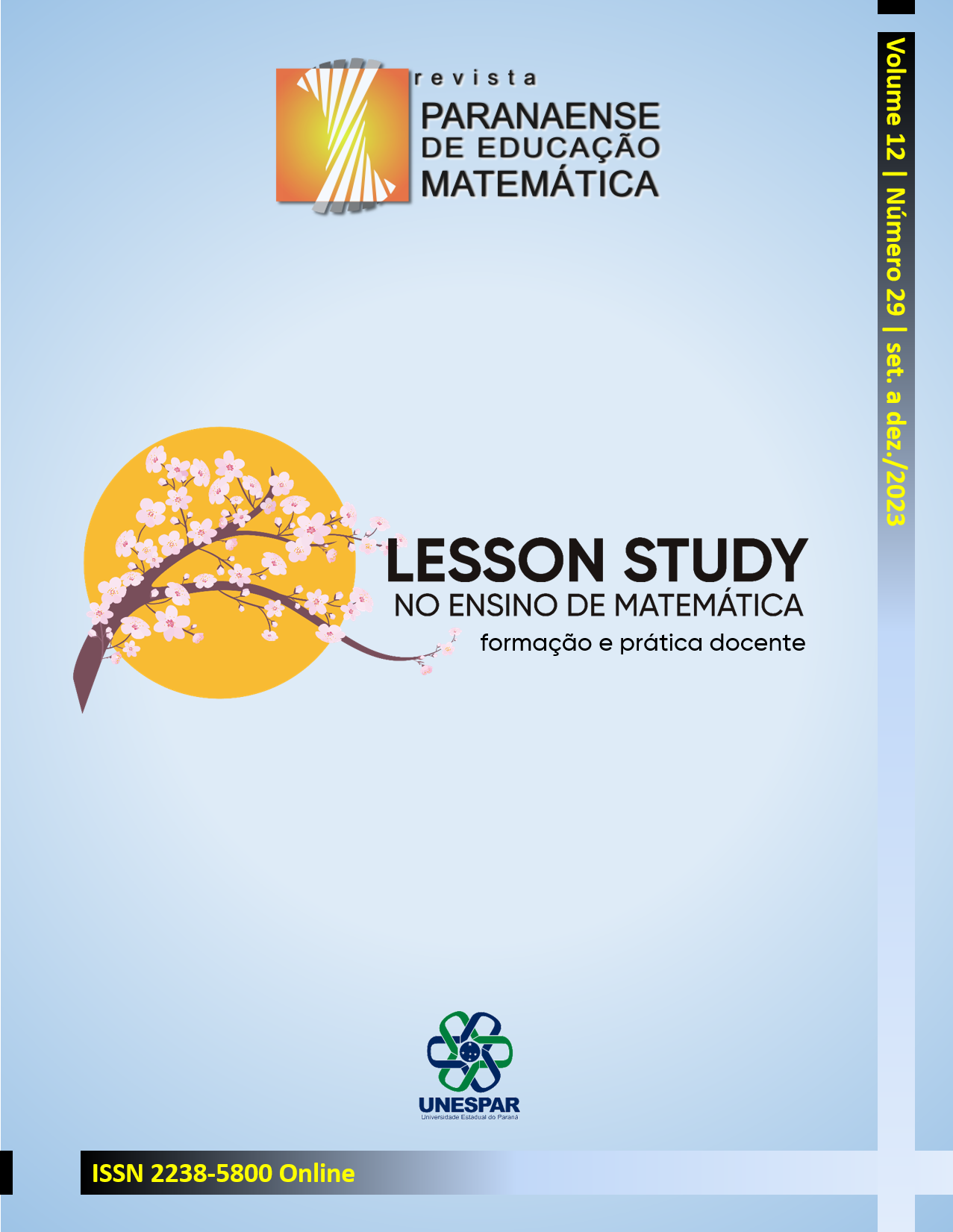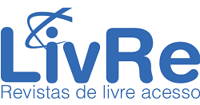Lesson Study e o planejamento de ensino no contexto da Discalculia do Desenvolvimento
DOI:
https://doi.org/10.33871/22385800.2023.12.29.188-211Abstract
This study is part of an ongoing master's degree research that intertwines Developmental Dyscalculia (DD) and Lesson Study (LS). In this text, we aim to present a teaching sequence constructed, collaboratively, by professionals who deal with a student with DD. The guiding research question is: “How to create a teaching sequence for a student with Developmental Dyscalculia based on a Lesson Study?”. The methodology is characterized as qualitative, action research type and the instruments used to produce the data were: filming records and individual collaborators' notebooks. These records were analyzed according to the Lesson Study process itself. The results showed that the starting point for carrying out a Lesson Study was the elaboration of a sequence of classes that allowed a movement towards building the autonomy of this student with DD in using the monetary system. To do this, we work on identifying banknotes and coins; the manipulation of different numerical compositions for integer and decimal values, and the manipulation of different numerical compositions to give change (addition and subtraction of rational numbers in integer and decimal representation). The decimal part was represented either by fifty cents or by values other than fifty cents.
Downloads
References
AMERICAN PSYCHIATRIC ASSOCIATION. DSM-5-TR: Manual diagnóstico e estatístico de transtornos mentais. 5. ed. Revisão de Texto. Washington, DC, Associação Psiquiátrica Americana, 2023.
BRASIL. Lei nº 14.254, de 30 de novembro de 2021. Dispõe sobre o acompanhamento integral para educandos com dislexia ou Transtorno do Deficit de Atenção com Hiperatividade (TDAH) ou outro transtorno de aprendizagem. Diário Oficial da União: seção 1, Brasília, DF, p. 5, 01 dez. 2021. Disponível em: http://www.planalto.gov.br/ccivil_03/_ato2019-2022/2021/Lei/L14254.htm. 2021. Acesso em: 01 maio. 2023.
BRASIL. Lei n° 9.394, de 20 de dezembro de 1996. Lei de Diretrizes e Bases da Educação Nacional. Brasília: Senado Federal, Coordenação de Edições Técnicas, 2017. Disponível em: https://www.planalto.gov.br/ccivil_03/leis/l9394.htm. Acesso em: 01 maio. 2023.
BRASIL. Ministério da Educação. Secretaria de Educação Especial. Política Nacional de Educação Especial na Perspectiva da Educação Inclusiva. Brasília: MEC/SEESP, 2008. Disponível em: http://portal.mec.gov.br/arquivos/pdf/politicaeducespecial.pdf. Acesso em: 10 jul. 2023.
FIORENTINI, D. Pesquisar práticas colaborativas ou pesquisar colaborativamente? In Pesquisa Qualitativa em Educação Matemática. Organizado por Marcelo de Carvalho Borba e Jussara Loiola Araújo. Autores: Dario Fiorentini, Antonio Vicente Marafioti Garnica, Maria Aparecida Viggiani Bicudo. 6. ed. Belo Horizonte: Autêntica Editora, 2019. 128 p. (Tendências em Educação Matemática, 9). ISBN 978-85-513-0589-8.
KOSC, L. Developmentol Dyscalculia. Journal of Learning Disabilities can be found at, v. 7, n. 3, p. 163-177, marc. 1974.
MENDUNI-BORTOLOTI, R. D.; BOTELHO PEIXOTO, J. L.; NEVES SILVA, T. Discalculia do Desenvolvimento: uma proposta de rastreio no campo educacional. Boletim GEPEM, [S. l.], n. 76, p. 18–31, 2020. DOI: 10.4322/gepem.2020.003. Disponível em: https://periodicos.ufrrj.br/index.php/gepem/article/view/194. Acesso em: 10 jun. 2023.
MENDUNI-BORTOLOTI, R. D. Matemática para o Ensino Forjada na Lesson Study. Educere et Educare, [S. l.], v. 14, n. 32, 2019. DOI: 10.17648/educare.v14i32.22537. Disponível em: https://e-revista.unioeste.br/index.php/educereeteducare/article/view/22537. Acesso em: 7 jul. 2023.
OLIVEIRA, J. P.; BRACKEN, S.; NAKANO, N. Preliminary indicators of the use of Lesson Study as a teaching practice capable of enabling an inclusive perspective in Higher Education. Revista Brasileira de Educação Especial, v. 27, n. 161, p. 371-390, 2021. Disponível em: https://www.scielo.br/j/rbee/a/khDmLzcYZHxWyFPP58xm9bK/?format=pdf&lang=en. Acesso em: 01 abr. 2023.
SOUZA, M. A. V. F.; POWELL, A. B. Kyozaikenkyu: essential lesson planning in japanese lesson study. CEMeR: Caminhos da Educação Matemática em Revista, Ano X, v. 13, n. 1, p. 1-24, 2023. Disponível em: https://periodicos.ifs.edu.br/periodicos/caminhos_da_educacao_matematica/article/view/1407/1381. Acesso em: 11 nov. 2023.
SOUZA, M. A. V. F.; WROBEL, J. S. Café, leite e matemática. Vitória, ES, Edifes, 2017. Bibliografia: p. 85.
TAKAHASHI, A.; MCDOUGAL, T. Collaborative lesson research: maximizing the impact of lesson study. ZDM - Mathematics Education, v. 48, n. 4, p. 513–526, 2016.
TAKAHASHI, A.; WATANABE, T.; YOSHIDA, M.; WANG-IVERSON, P. Improving content and pedagogical knowledge through Kyozaikenkyu. In: WANGIVERSON, P.; YOSHIDA, M. (Eds.). Building our understanding of lesson study. Research for Better Schools. 2005, p. 101-110.
WATANABE, T. Japanese lesson study in the United States. Journal of the International Society for Design and Development in Education, v. 3, n. 11, p. 1-13, 2018. Disponível em: https://www.educationaldesigner.org/ed/volume3/issue11/article43/pdf/ed_3_11_watanabe.pdf. Acesso em: 14 nov. 2023.
Downloads
Published
How to Cite
Issue
Section
License
Copyright (c) 2023 Revista Paranaense de Educação Matemática

This work is licensed under a Creative Commons Attribution-NonCommercial-NoDerivatives 4.0 International License.










